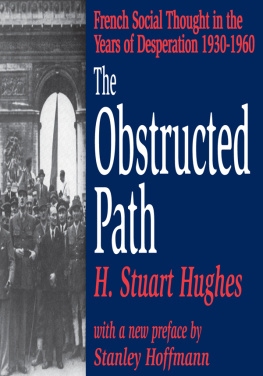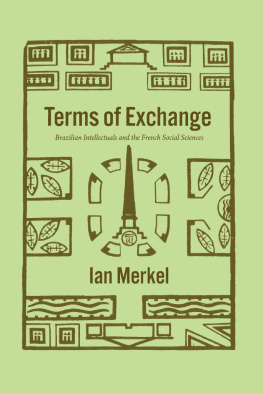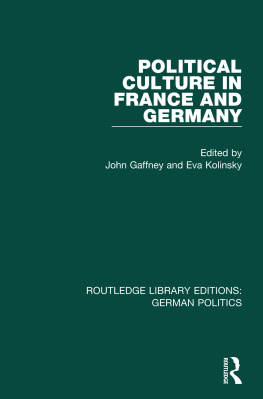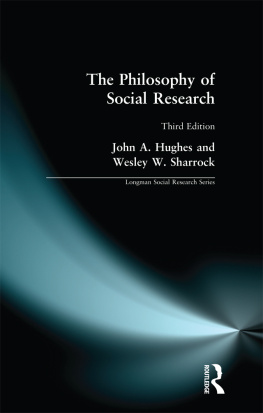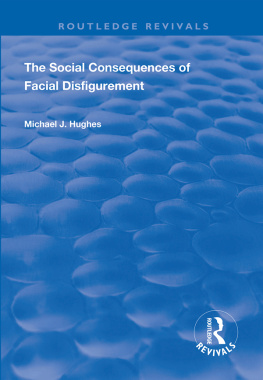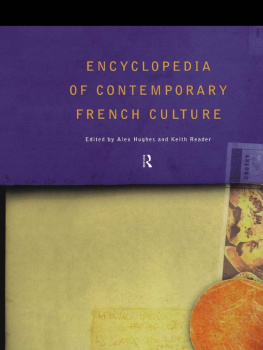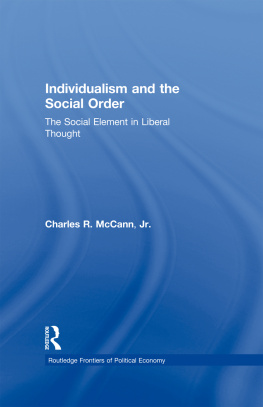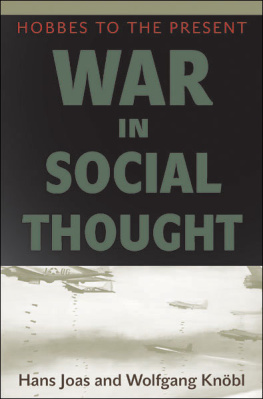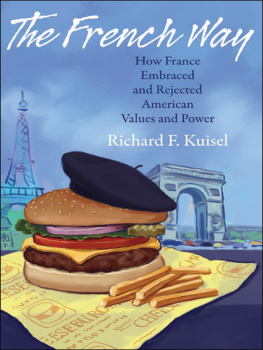H. Stuart Hughes - The Obstructed Path: French Social Thought in the Years of Desperation 1930-1960
Here you can read online H. Stuart Hughes - The Obstructed Path: French Social Thought in the Years of Desperation 1930-1960 full text of the book (entire story) in english for free. Download pdf and epub, get meaning, cover and reviews about this ebook. year: 2001, publisher: Routledge, genre: Detective and thriller. Description of the work, (preface) as well as reviews are available. Best literature library LitArk.com created for fans of good reading and offers a wide selection of genres:
Romance novel
Science fiction
Adventure
Detective
Science
History
Home and family
Prose
Art
Politics
Computer
Non-fiction
Religion
Business
Children
Humor
Choose a favorite category and find really read worthwhile books. Enjoy immersion in the world of imagination, feel the emotions of the characters or learn something new for yourself, make an fascinating discovery.
- Book:The Obstructed Path: French Social Thought in the Years of Desperation 1930-1960
- Author:
- Publisher:Routledge
- Genre:
- Year:2001
- Rating:5 / 5
- Favourites:Add to favourites
- Your mark:
The Obstructed Path: French Social Thought in the Years of Desperation 1930-1960: summary, description and annotation
We offer to read an annotation, description, summary or preface (depends on what the author of the book "The Obstructed Path: French Social Thought in the Years of Desperation 1930-1960" wrote himself). If you haven't found the necessary information about the book — write in the comments, we will try to find it.
The years of political and social despair in France-from the great depression through the Nazi occupation, Resistance, and liberation, to the Algerian War-forced French intellectuals to rethink the values of their culture. Their faltering attempts to break out of a psychological impasse are the subject of this thoughtful and compassionate book by a distinguished American historian. In this first treatment of contemporary French thought to bridge philosophy, literature, and social science and to show its relation to comparable thinking in Germany, Britain, and the United States. Hughes also assesses the work of other writers in terms of their emotional biography and role in society.
Hughes found those who struggled to find meaning and purpose amid chaos to be among the most brilliant minds of their century. They included the social historians Bloch and Febvre; the Catholic philosophers Maritain and Marcel; the proponents of heroism Martin du Gard, Bernanos, Saint-Exupery, Malraux, and DeGaulle; and the phenomenologists Sartre and Merleau-Ponty. They also included the strangely assorted trio of Camus, Teilhard de Chardin, and Levi-Strauss, who showed the way to a wider cultural community. Yet in nearly every case these scholars achieved something quite different from what they set out to do. For this self-questioning generation, the interchange between history and anthropology became most compelling and of greatest interest to the world outside.
The Obstructed Path blends H. Stuart Hughes concern for the many ways in which historians define and practice their craft, his lifelong interest in literature, his fascination with the influence of Marx and Freud, and his empathy with the varieties of Christian thought. It also demonstrates his delicate grasp of singular personalities such as Bernanos, Merleau-Ponty, Jean-Paul Sartre and Levi-Strauss. His profound insight into the flaws of many elaborate philosophical constructions, and into the core of deep emotions, bold images, and searing passions that were often hidden in them, bring us close to these thinkers and makes this an enduring work.
H. Stuart Hughes: author's other books
Who wrote The Obstructed Path: French Social Thought in the Years of Desperation 1930-1960? Find out the surname, the name of the author of the book and a list of all author's works by series.

